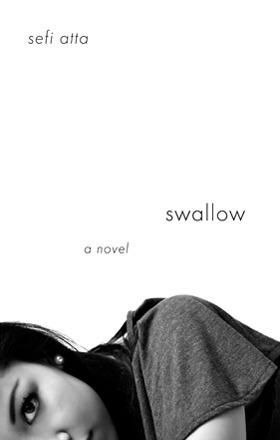What do you think?
Rate this book


268 pages, Paperback
First published July 2, 2010
Was it possible that once a woman refused to behave herself, she could end up fighting the whole world?This is a book that had potential along one characteristic of fiction or another, but didn't commit to tying them all together in time before the dust of the concluding lines had settled. A first-person narrative perspective meant the reader had front row seats to the back cover's pithily put "struggle with temptation", but the opportunities offered by instant interiority largely went unheeded. The plot is as dire as the description of it sounds, but much like today's movie commercials, so much of it is given away at the beginning that what is left cannot merit the hook that dragged in the audience. Myriad characters makes for myriad chances to craft a truly fascinating humanoid entity, but at the risk of the side character with all their lack of point of view supplanting the supposed protagonist. There's as many ways of of succeeding at all these as there is at failing, so it isn't as simple as pointing out what and when and where things went wrong and what can be done to fix it. I have to say, though: if you're going to chain your climax to your title in such overt way, you'll have to work that theme to death throughout the book, else it won't leave much besides slight readerly appreciation for a clever turn of phrase.
...I have always said, in passing judgments on others, that if you want to know the best and worst a person is capable of, try and imagine their greatest fear.For whatever reason, my university's edition is one that was actually produced in Lagos, which made for an interesting compare and contrast to what Goodreads currently features. Not only does the front cover of mine completely pass over the woman of color trope in favor of something completely abstract yet oddly thematic, the back offers a wealth of names I'm far more used to digging up than seeing blurbed on contemporary lit. Tadjo, Aboulela, Dangarembga, Okorafar-Mbacha. I hadn't even come across Tade Ipadeola till now, which goes to show how much farther I have to go. This and the unexotic and non-pontificating descriptions of postcolonial, post-civil war, 1980's Nigeria life, both city and rural and everything inbetween, was ultimately what made the book worth reading. I would certainly put more effort into appreciating the design of books if I knew I had this much respectful yet intriguing holism of book culture and artwork to look forward to.
If a woman had enough energy to sleep with another woman's husband, then she ought to have enough energy to contribute to the chores in his household. It was only fair.All in all, this was a quick read, a few flashes of epigram worthy prose and thematic power not raising the level of quality beyond that of standard narrative decency. In tune with my fascination with the edition, I'll be making a Listopia version of all the books mentioned as being put out by the publisher near the back before I bring it back.
But not everyone was approached by a drug recruiter. If they were, how many would end up smuggling? How many would refuse?